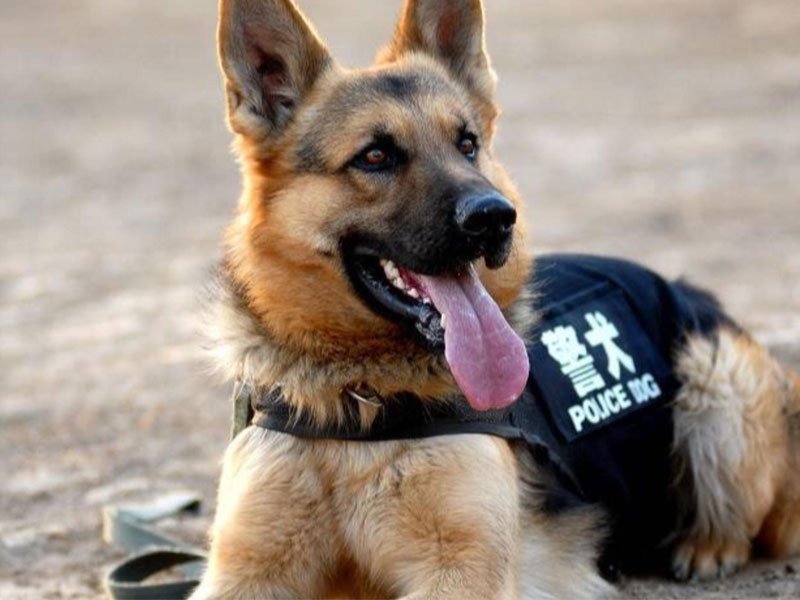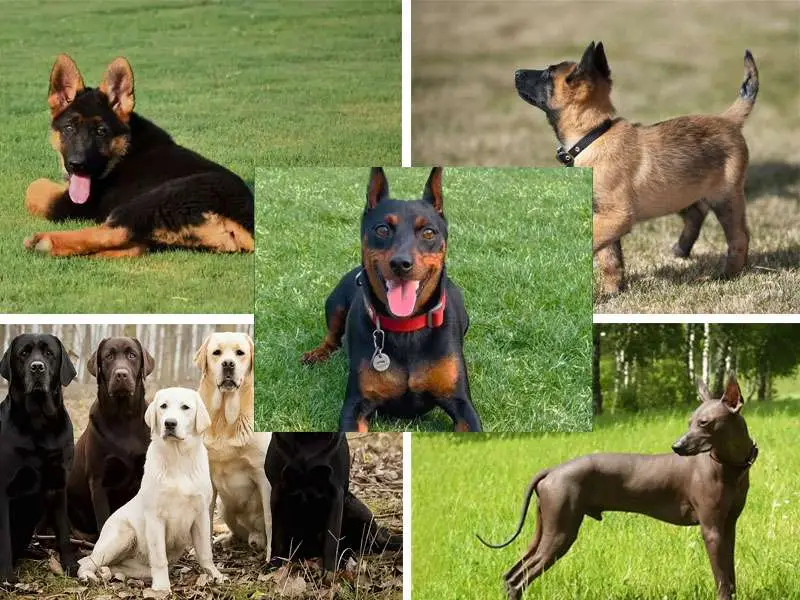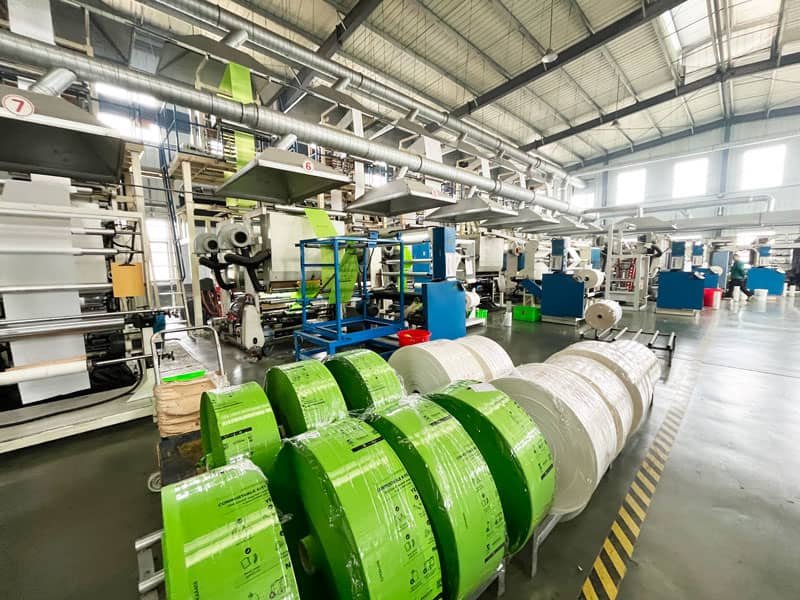We often hear in TV dramas or at training grounds: "K9 unit has arrived at the scene." Why are dogs called K9? Why not just say police dog? Why not use K9 instead?
In this in-depth guide, we’ll explore the origin of the term K9, the linguistic evolution of "canine", and how K9 dogs serve in law enforcement and beyond. Plus, as a manufacturer of compostable dog poop bags, we’ll share practical tips for dog lovers who want to care for their pets—and the planet—with the same respect K9 handlers do.

What Does K9 Mean in Dogs?
K9 is a homophone for the word canine, which is the scientific term for dogs. It's pronounced the same way as "canine," but written as "K9," blending the letter K and the number 9 to mimic the original word's sound.
This abbreviation is not just clever—it’s also practical. Especially in law enforcement, K9 is shorter, easier to print on uniforms and vehicles, and quicker to say over the radio.
From Latin to Slang
The word canine traces back to Latin—specifically the word "canis", which simply means "dog." Over centuries, it evolved through Old French ("canin") and Middle English into today’s form.
But how did “canine” turn into K9?
That leap happened in the 20th century, especially during wartime when military communication favored brevity. The shift from canine to K9 wasn't just linguistic—it was tactical.
Why Are Police Dogs Called K9s?
K9 units are specialized teams within law enforcement that use dogs trained to perform specific tasks—like detecting explosives, search and rescue, tracking fugitives, and even apprehending suspects.
But why the term K9?
In part, because it’s faster and clearer for radio communication. But also because the term K9 symbolizes professionalism, training, and specialized purpose. It separates these dogs from everyday pets—even though many start out just like them.
The term gained traction during World War II, when dogs were officially enlisted for military use. Over time, K9 units became standard in police departments across the world.

What Kind of Dogs Are Used in K9 Units?
1. German Shepherd
German Shepherds are most commonly used in police work and excel in protection, tracking, and apprehension missions. Their intelligence, strength, and loyalty make them suitable for a variety of missions.
2. Belgian Malinois
Belgian Malinois are known for their agility, focus, and drive and are often used in detection (drugs, explosives), tracking suspects, and patrol work. Their small size and high energy make them well suited for physically demanding missions.
3. Labrador Retriever
Labrador Retrievers are primarily used for detection work, such as sniffing out bombs, drugs, or contraband. They also excel in search and rescue missions due to their keen sense of smell and high work ethic.
4. Bloodhound
Bloodhounds are known for their tracking abilities. Their sense of smell is so good that they are able to find missing persons or track suspects over long distances.
5. Doberman Pinscher
Doberman Pinschers are often used for apprehension and protection missions. Their muscular build and fearless nature allow them to function in physically demanding environments, but they are better suited to warmer climates.
Historical Development of Police Dogs
K9 Dogs vs. Service Animals
While both serve humans, K9 dogs and service animals have very different roles.
- K9 Dogs: Work in police, military, border patrol, etc.
- Service Dogs: Help individuals with disabilities perform daily tasks (e.g., guide dogs for the blind)
One operates in high-risk environments; the other provides personal aid. Both require professional training and certification, but their day-to-day roles couldn’t be more different.
K9 in Pop Culture and Media
The term K9 has transcended its original military context to become a staple in TV, movies, and pet branding.
Think of characters like:
- Rin Tin Tin – The original K9 movie star.
- Hooch from Turner & Hooch
- The robotic dog K-9 from Doctor Who
These stories helped elevate the status of K9 dogs from military helpers to beloved household names. Today, you’ll find K9 logos on leashes, food bowls, and even poop bags.
Why This Matters to Everyday Dog Owners
Even if your pup isn’t sniffing out contraband or tracking criminals, you’re still benefiting from centuries of dog training and human-canine bonding.
Understanding where the term K9 comes from helps dog lovers appreciate the deep legacy of loyalty and service these animals have offered—and continue to offer—across cultures.
It also reminds us to treat our pets with the respect and care they deserve.
Responsible Pet Ownership Starts With Daily Cleanup
Let’s talk poop.
As a manufacturer of compostable dog poop bags, we know that caring for a dog means more than cuddles and playtime—it means cleaning up responsibly.
Tips for Responsible Waste Disposal:
- Use compostable poop bags – Ditch plastic. Switch to plant-based alternatives that break down naturally.
- Avoid flushing dog waste – It can harm water systems.
- Never leave poop behind – It's harmful to soil, water, and other dogs.
Whether you own a golden retriever or a Belgian Malinois, daily clean-up is part of the K9 code.
At ORIZON, we produce eco-friendly, certified compostable poop bags that align with global environmental standards. Built strong, leak-proof, and guilt-free—our bags make every walk cleaner and greener.
The Environmental Impact of Dog Waste
Here’s a stat that might surprise you: The average dog produces over 270 pounds of poop per year. That’s a lot of waste—and if it ends up in plastic bags, it can sit in landfills for centuries.
That’s where compostable dog poop bags come in. Made from cornstarch and other plant-based materials, they’re:
- Biodegradable
- Non-toxic
- Better for your dog’s health
- Better for the planet
As more pet parents and K9 handlers go green, these small changes make a huge difference.
Facts About the Term K9
- K9 isn’t just an English abbreviation—many countries use similar short forms (like “Chiens CRS” in France).
- The oldest recorded K9 unit dates back to 1888 in Ghent, Belgium.
- The number 9 in “K9” has no special meaning—it's simply phonetic.
Conclusion
The term K9 isn't just a label—it’s a symbol of discipline, bravery, and partnership. From ancient Latin roots to Hollywood stardom, dogs have earned a special title for the extraordinary ways they serve humans.
Whether you’re a pet owner, a police officer, or a poop bag manufacturer like us—understanding the legacy of the K9 name gives deeper meaning to every walk, every wag, and yes… every clean-up.






